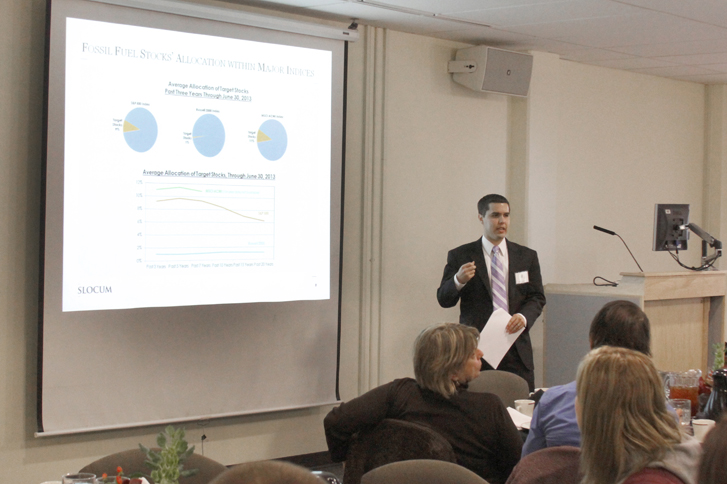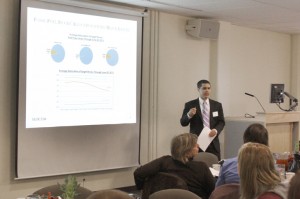
America has a dependence on fossil fuels, and Pacific Lutheran University is no exception.
PLU held a forum lunch Tuesday in the Anderson University Center to discuss the university’s decision to use its endowment to invest in fossil fuels and how to avoid those investments in the future, also known as divestment.

The forum began with a brief presentation from an outside research firm called Slocum. Slocum, of Minneapolis, Minn., discussed its findings on PLU’s endowment, other universities’ endowments and if other schools decided to divest.
An endowment is a fund given to a person or organization, which can be used as a tool for intergenerational equality in a sustainable manner for future generations to receive benefit. PLU’s current endowment is $80 million, 60 percent of which is for student scholarships. The other 40 percent is spent on other needs for the university, including investments in fossil fuels.
“Fossil fuel stocks correlate with fossil fuels,” Solcum presenter Mark Anderson said. “And fossil fuels are a necessary item in today’s market, so it makes sense to invest in them.” Solcum’s research supports this statement.
Solcum works with 48 Endowment and Foundation clients. All its views and reasons vary, but Solcum said none of his clientelle have found it feasible to divest from fossil fuels. The reasons behind these decisions were based on stock portfolio size, cost of investment managements and alternatives to divestment.
After the presentation, the floor opened up for students to voice their opinions. The first student up was senior Jenny Taylor, president of the Grass Roots Environmental Action Now (G.R.E.A.N.) club on campus. Taylor is responsible for banning bottled water on campus and is a leader in coal train protests.
She told the crowd she wanted PLU’s endowment to reflect PLU’s mission statement of caring for the earth. She also said many other universities have already decided to divest, and PLU should follow their example.
Other students and sustainability advocates also stood to express their views along similar lines on the need to divest because of PLU’s commitment to sustainability. In addition, ASPLU has drafted a movement to have PLU freeze any new investments in fossil fuel companies and to divest within five years from fossil fuel companies.
“This forum is a formal beginning for this conversation,” Taylor said. “I hope that the board will be challenged to consider the different forms and strategies for divestment.
















